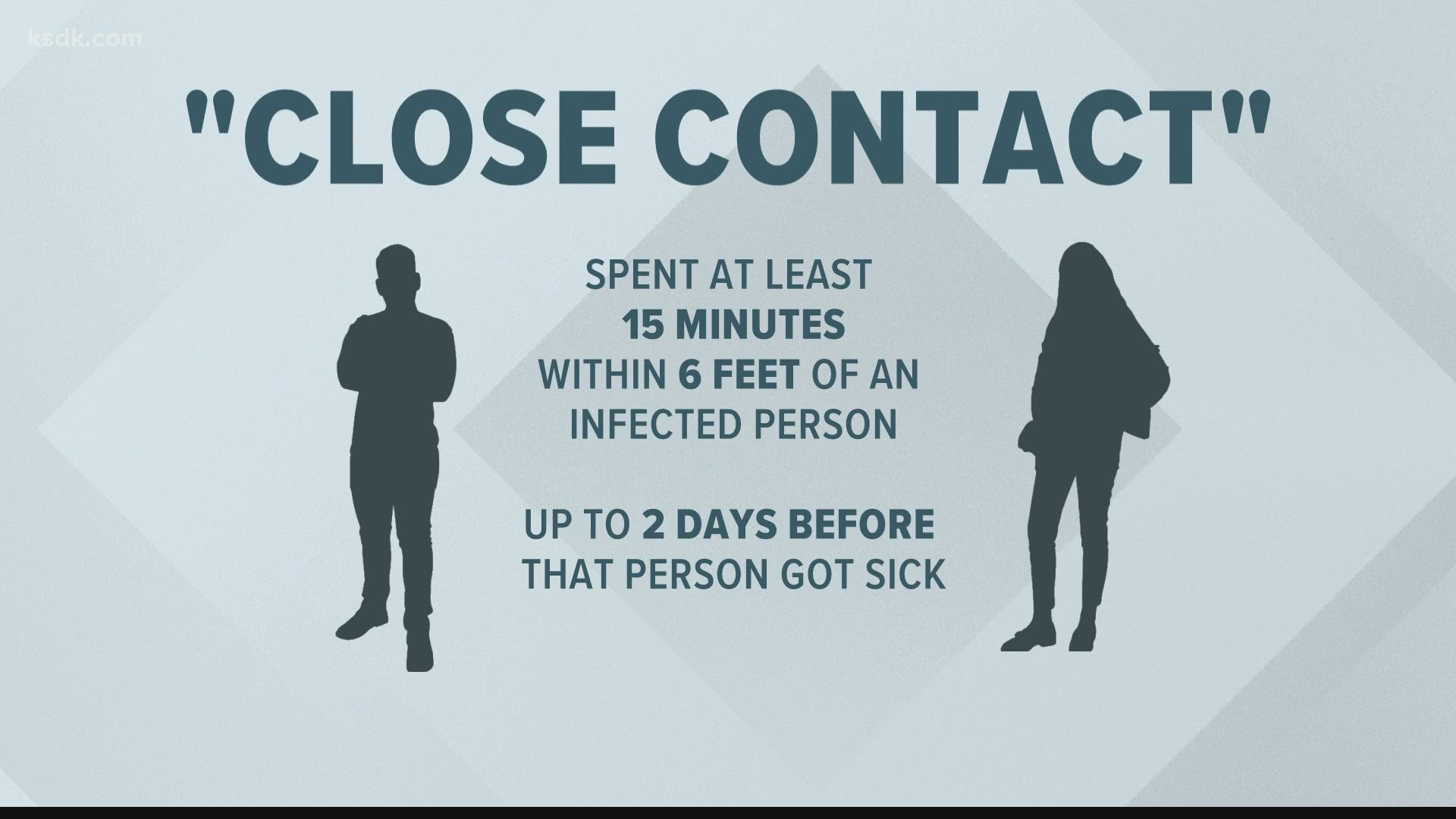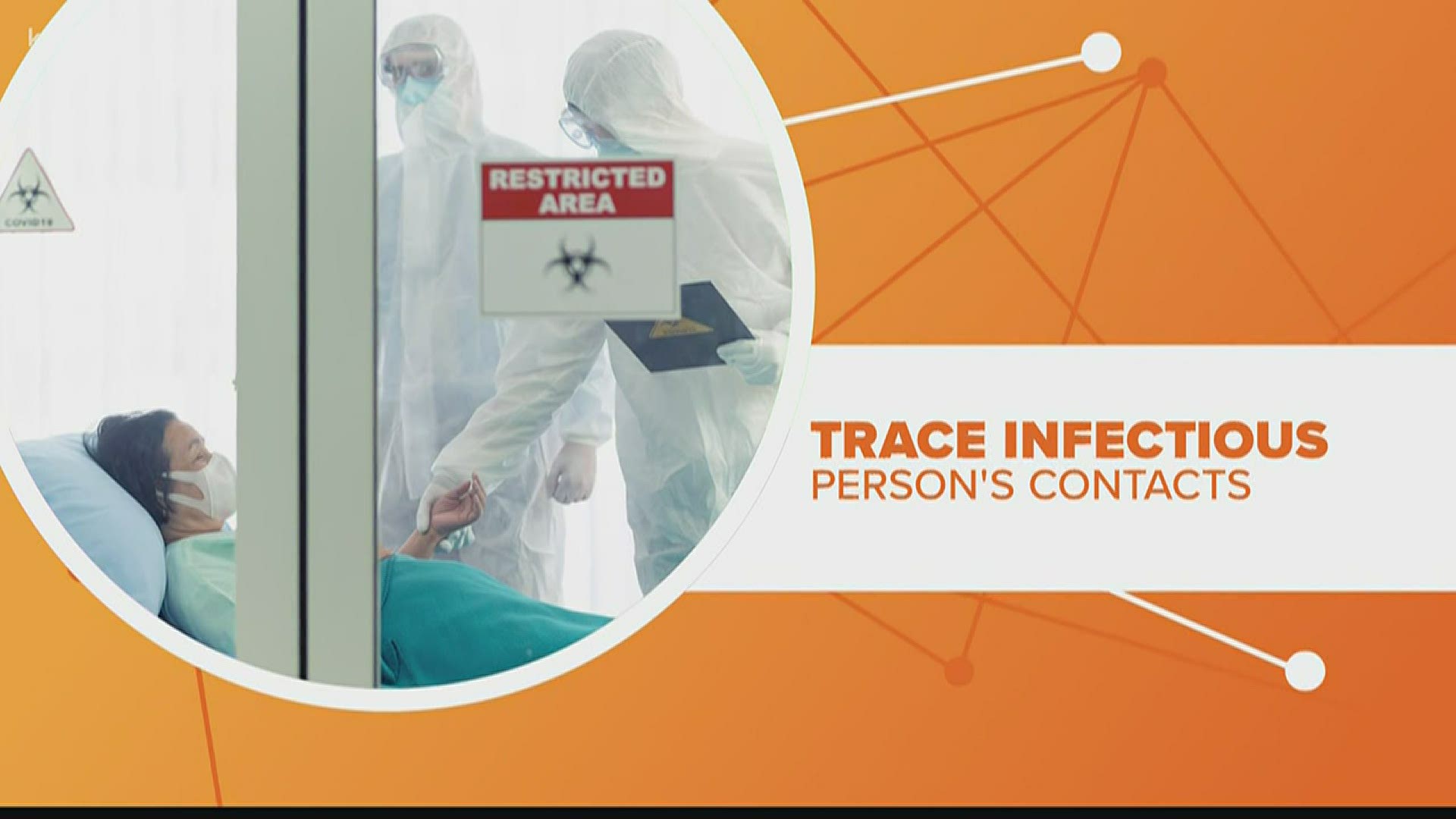ST. LOUIS — You know when you lose something and you retrace your steps to see where you could have left it?
Contact tracing for COVID-19 is like retracing your steps — in this case, to see who you might have transmitted the infection, and specialized “contact tracers” are the ones who guide that search.
Along with testing, health experts agree that contact tracing is an essential way to "keep the curve flattened" and prevent large-scale transmission of COVID-19.
While contact tracing happens with any reportable communicable disease, health departments are stepping up their efforts looking for those who are in “close contact” with COVID-19-positive patients. The CDC defines a "close contact" as someone who spent at least 15 minutes within 6 feet of an infected person up to two days before that person got sick.
If you're the one who tests positive, a contact tracer will interview you to determine who you've been around — who may be at risk. They’ll also work to connect you with resources to get you healthy.
If you're identified as a "close contact," a contact tracer will call you and tell you someone you've been around has COVID-19 (but for privacy reasons, not who that person is) and that you now have to self-quarantine for two weeks.
Contact tracers need to be comfortable handling sensitive information and good communicators, especially in stressful situations. They are usually health department employees, but more people will be needed to help during this crisis.
Illinois Governor JB Pritzker announced the state's boosted contact tracing efforts would begin in part in St. Clair County. To apply to become a contact tracer, visit the Illinois Department of Public Health's website.


